Search Results
Showing results 681 to 700 of 786
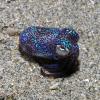
What is Light?
Source Institutions
In this four-part activity, learners will discover the exciting world of light--the most important form of energy in our world--and be able to identify and describe different types of light.

Our Sense of Hearing
Source Institutions
In this activity, learners investigate the sense of hearing and plan and conduct their own experiments.

Ants
Source Institutions
In this outdoor activity, learners investigate ant behavior by testing ant feeding reactions to different types of food.
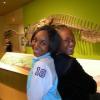
Bone Identification
Source Institutions
This activity (page 3 of the PDF under SciGirls Activity: Dinosaurs) is a full inquiry investigation into fossil hunting and identification.
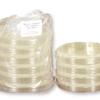
Does Sunscreen Protect My DNA?
Source Institutions
In this laboratory experiment, learners explore how effectively different sunscreens protect yeast cells from damage caused by ultraviolet (UV) radiation.
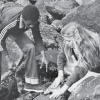
Rock Pioneers
Source Institutions
In this outdoor activity/field trip, learners investigate organisms that live along the ocean's rocky coast.

Dark Adaptation
Source Institutions
In this activity (6th on the page), learners investigate how photoreceptors in the eye (rods and cones) "adapt" to low light conditions.
Coincidental Colonization
Source Institutions
In this game of chance, learners will discover how organisms colonized the Galápagos Islands, experiencing how chance plays a role in the successful dispersal of species to new areas.
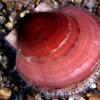
The Scoop on Scallops
Source Institutions
In this data analysis activity, learners quantify the abundance and distribution of sea scallops in and adjacent to the Mid-Atlantic closed areas.
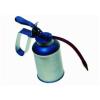
Pesticides and Eggshell Thinning
Source Institutions
This lab activity is about toxic substances like pesticides and their effects on biological systems. The activity starts with an introduction of how birds sequester calcium to make an egg.
Sea State: Forecast Conditions at Sea
Source Institutions
In this oceanography and data collection activity, learners cast real time sea state conditions using buoys from NOAA's National Data Buoy Center.

Seed Orbs
Source Institutions
In this activity, learners will make seed orbs to grow new trees and plants. Learners will explore ecology and life cycles as well as stewardship through this activity.

Extinct!: Are You Smarter than a Plant?
Source Institutions
In this online activity, learners find out whether they are smart enough to survive as a plant.
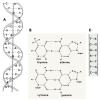
DNA the Easy Way
Source Institutions
This demonstration can be used to help learners visualize DNA by lysing (breaking open) bacterial cells on a slide and “stringing up” the DNA with a toothpick in less than one minute.
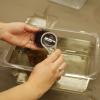
Tide Pool Survival
Source Institutions
In this activity, learners observe tide pool animals in a touch tank to consider how they survive.

Animal Anti-Freeze
Source Institutions
In this outdoor winter activity, learners search for and create hibernation sites that will protect gelatin "animals" from freezing.
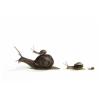
Small Snails, Enormous Elephants
Source Institutions
This activity (located on page 2 of PDF) introduces learners to the real size of animals using nonstandard measurement.

Healthy Habitats Have Native Plants
Source Institutions
In this activity, learners help identify native and non-native plant species, learn about invasive species, and determine how native plants provide a healthier habitat.

Guess My Rule
Source Institutions
In this activity, learners play a guessing game to explore classification.

Crazy Camouflage
Source Institutions
In this activity about camouflage, learners create a model that shows how a flounder is able to blend into a variety of environments.
